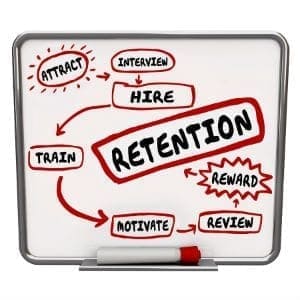 Great marketing is all about being able to tap into the mind of your target audience. As a hotelier, you must figure out ways to entice travelers to book a room in your hotel. There are numerous psychological tactics that marketers use to drive traffic to their sites and promote direct bookings. Listed below are few methods hotel marketers use to build interest in their brands and draw travelers to their sites.
Great marketing is all about being able to tap into the mind of your target audience. As a hotelier, you must figure out ways to entice travelers to book a room in your hotel. There are numerous psychological tactics that marketers use to drive traffic to their sites and promote direct bookings. Listed below are few methods hotel marketers use to build interest in their brands and draw travelers to their sites.
Getting emotional
There is plenty of research that shows that marketing works best when it pulls the emotional strings of the consumer. When travelers feel that a brand is connecting with them on an emotional level, they are more likely to relate to and trust that brand. The best way for hoteliers to emotionally resonate with their targeted audience is to promote benefits over features. For example, if you want to draw business travelers, don’t just mention that you have business services available. Instead, tell them that they can keep up with all of their important business tasks by using your business services. This places the focus on the benefit of your business center: they’ll never be behind with work because your property offers everything they need.
Just for you
Consumers are more responsive when they feel important and special. You should make your potential guests feel like they’re a part of an exclusive group when staying at your hotel. Make them feel like your property is just for them. Once you know your target traveler audience, be sure to promote things that would interest them. If you draw a party crowd, post blogs about nightlife, concerts, and festivals in your area. If families are your target, promote more family-friendly events. If travelers feel like your hotel speaks directly to their needs, they will respond.
Follow the leader
Due to the prominence of social media, word of mouth has become one of the strongest forms of advertising. The best way for hoteliers to take advantage of this “follower culture” is by using social proof to promote their hotels. Social proof is the idea that people will follow the actions of those that they find trustworthy. A great way for hotels us this tactic is the user video. Reposting videos of people enjoying themselves at your hotel will place a positive image in the mind of travelers. Sharing, reposting, and favoriting positive social media posts about your property are other ways that social proof comes into play. One of the strongest forms of social proof is the hotel review. Posting guest reviews about your hotel on your social media site or even having a few reviews visible on your website will show how others feel about your property. When travelers see that others had a great time at your hotel, they believe they will also have a great experience.
Do it now
When consumers feel the pressure of time, they are more likely to make a quick decision. This is why the appearance of scarcity and a sense of urgency can help your booking numbers increase. If there is a popular event happening near your hotel, let guests know that the number of available rooms are limited. Guests will rush to book a room before it’s too late. You can also use deals and promotions to generate urgency. Make special deals available for a short period of time or only for a certain amount of first responders. This will influence travelers to make a quicker decision on booking at your hotel.
Understanding human psychology is important for hoteliers who want to successfully market their property to the masses. The goal is not to trick people into booking at your hotel; it’s to let them know why your hotel is the best choice for them. Once you learn how to speak to the emotions of your audience and use your online resources to showcase the benefits of staying at your hotel, travelers will engage with your brand more.
About the author



















